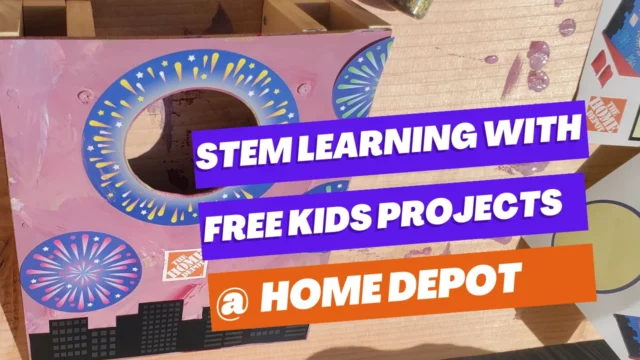Home improvement stores are not usually associated with educational opportunities, but as I recently discovered, Home Depot is breaking the mold. Traditionally, my experiences with Home Depot were marred by inconsistent customer service and a lack of readily available assistance. This prompted me to turn to their competitor, Lowe’s. However, Home Depot has recently made a remarkable change: they have started offering Free Hands-On Workshops for kids every month. Intrigued, I decided to give it a try.
The Project: Mini Corn Hole Game
Accompanied by my children, I attended one of these workshops where they were each given a free kit to build a mini cornhole game. Equipped with screwdrivers, hammers, and paint, we embarked on the project right there in the store. Witnessing my children’s enthusiasm and engagement during this hands-on experience, I couldn’t help but think about the potential of implementing similar activities in elementary classrooms.
Project-Based Learning:
Project-based learning is an approach that immerses students in real-world projects, encouraging them to participate in the learning process actively. The workshop at Home Depot epitomized this concept perfectly. By integrating hands-on STEM activities into the learning environment, children enjoyed themselves and developed valuable skills and knowledge.
Challenges:
However, the prospect of replicating this project within a traditional classroom setting poses several challenges. Safety concerns arise when children are required to handle tools like hammers and tacks without constant supervision. Teaching such a lesson to an entire class simultaneously would be arduous, making it more suitable for small group work with the support of parent volunteers. Liability concerns also loom large, as accidents can occur even with the best precautions in place. Fundraising or obtaining the necessary supplies for such projects can also present further obstacles.
Regrettably, most educators would likely choose not to teach this particular lesson due to these complexities. This is why I am grateful that Home Depot has taken the initiative to provide these workshops. The company distributes free kits, parents must be present and sign a waiver, and then children are free to embark on their project, allaying concerns related to safety and liability.
Other Stem Opportunities:
Fortunately, there are dedicated teachers who recognize the transformative power of project-based learning and actively incorporate it into their classrooms. At my school, hydroponics gardening projects have become a beloved method of engaging students in hands-on learning. Similarly, teaching coding only requires a computer, and when coupled with robotics kits, students can bring their projects to life.
We Need to Adapt:
Safety and health concerns have significantly impacted public education in recent times. As we navigate these challenges, finding innovative ways to expand project-based learning in public schools is essential. By creating environments that foster exploration, collaboration, and problem-solving, students can develop the critical skills necessary for success in the 21st century.
Conclusion:
To fully embrace project-based learning, educators must be supported with adequate resources, training, and a shift in mindset. Collaborative efforts between schools, local businesses, and community organizations could help bridge the gap by providing expertise, mentorship, and access to necessary materials.
As an advocate for project-based learning, I hope schools will recognize the immense benefits it offers students. Home Depot’s workshops exemplify how project-based learning can captivate young minds and foster a love for hands-on exploration. Let us join forces to create educational environments that prioritize experiential learning, empowering our students to become active participants in their education and preparing them for a future filled with endless possibilities.


